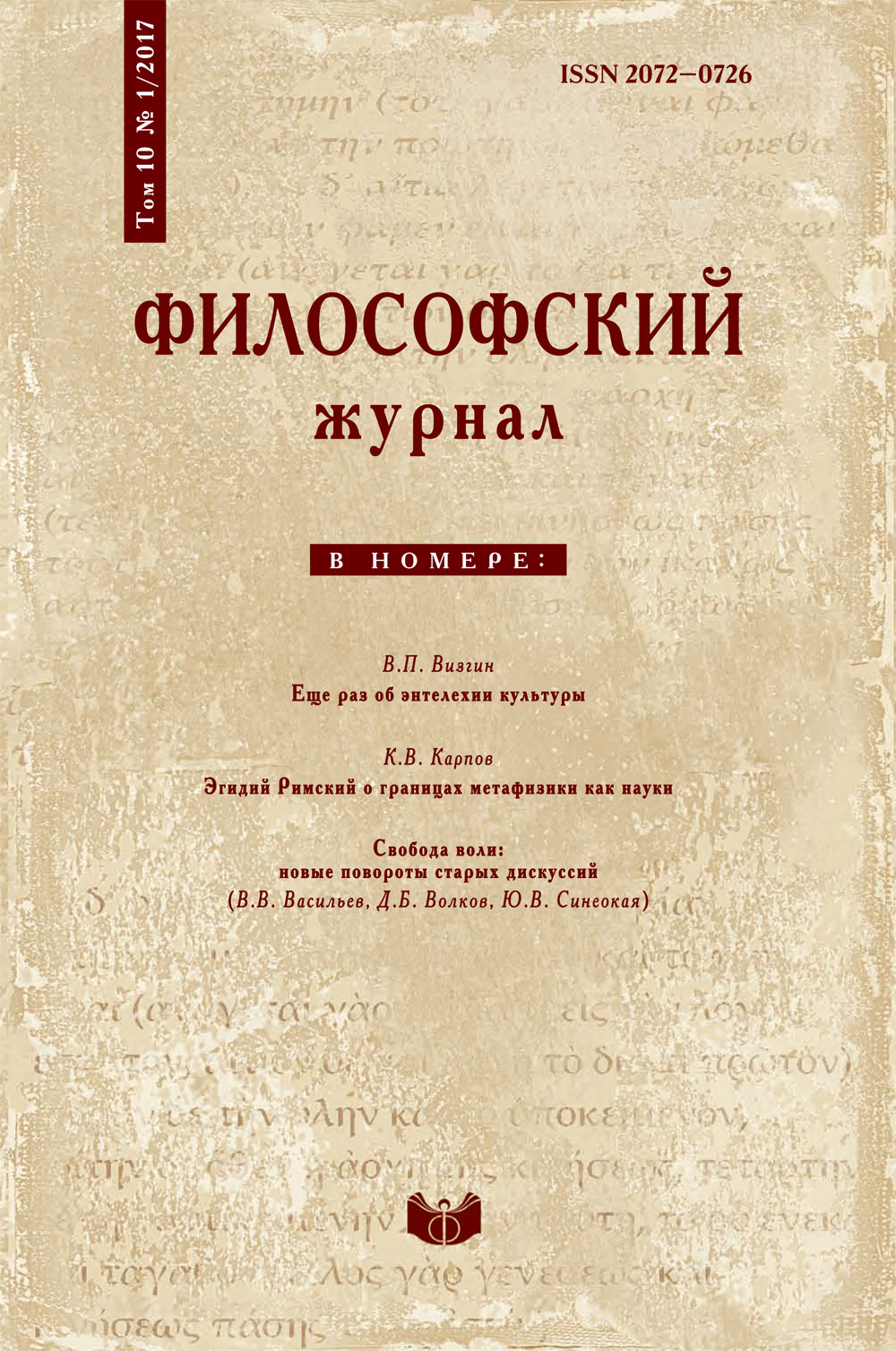Image of the Other in Merleau-Ponty's early theory of imagination
DOI:
https://doi.org/10.21146/2072-0726-2017-10-1-116-135Keywords:
Merleau-Ponty, Sartre, the Other, imagination, perception, image, oneirism, gazAbstract
Lecture notes of the courses Merleau-Ponty delivered throughout 1950s at Sorbonne and Collège de France give evidence of the first steps he was taking towards developing, in a polemic with Sartre, his own approach to the problem of imagination. These texts are brought under scrutiny in the present paper, with a special emphasis on the role of the experience of the Other which, in Merleau-Ponty’s analysis, under mines Sartre’s opposition between perception and imagination. The author seeks to demonstrate both the efficiency and the inconsistency of Merleau-Ponty’s early en deavours to criticize Sartre’s theory of the imaginary, tracing down the development of his own approach to imagination starting from the privileged position given to the experience of the Other (which in itself is quite uncharacteristic of Merleau-Ponty’s view of the problem of the Other) as dissolving the boundaries between perception and imagination, and up to the moment when, as a result of his study of Freud, he comes to deny the experience of the Otherany privileged status in favour of subordinating its allegedly specific nature to the general principle of perception. The conclusions reached in the course of this enquiry allow to suggest a significant parallel between the privileged place of the Other in Merleau-Ponty’s early critique of Sartre's doctrine and the motive of the 'gaze of things' in his later theory of image.






